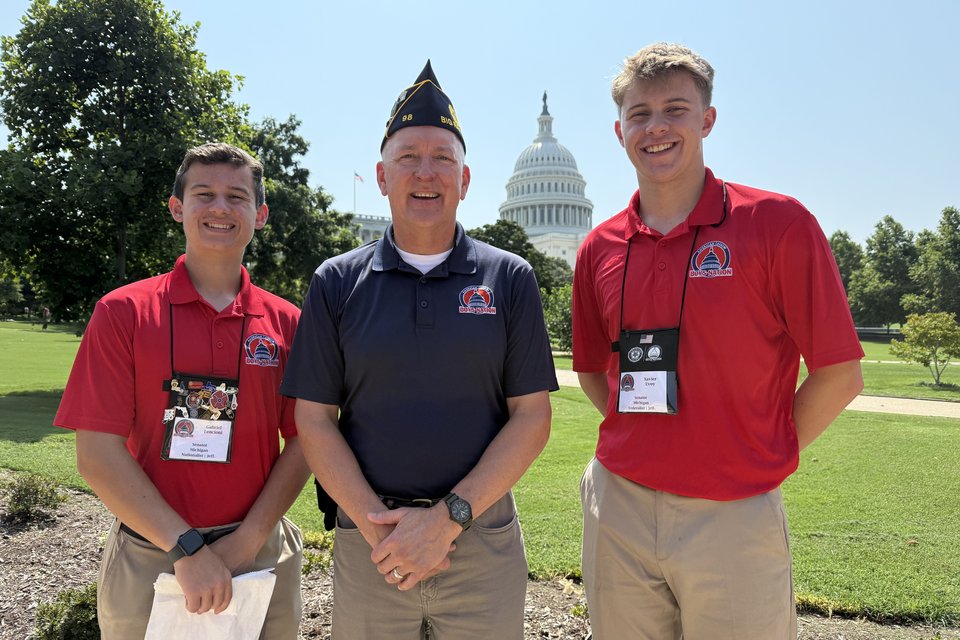The centuries-old tradition was introduced at the university in the late 1800s and has carried on in the law school since 1912
DETROIT — Judges, lawyers, law clerks, professors and law students from the University of Detroit Mercy Law School gathered Sept. 23 at SS. Peter and Paul Jesuit Catholic Church to celebrate the 113th annual Red Mass and ask the blessing of the Holy Spirit on the coming year’s work.
The custom of a special Mass for the bench and bar dates back to England, France and Italy in the early 13th century, when Mass was celebrated at the opening of each term of court, and clergy wore red vestments in honor of the Holy Spirit. The tradition made its way to the university — then known as Detroit College — in 1877, when a Red Mass was held at the beginning of the school’s first year. The School of Law continued the tradition when it opened in 1912.
Don't miss another story
Did you know you can get Detroit Catholic's latest daily or weekly articles delivered to your inbox? It's easy and free to sign up.
In his homily, Fr. Charles Oduke, Detroit Mercy's vice president for university integration, reflected on the life and words of St. Thomas More, the patron saint of lawyers who served as the chancellor of England under King Henry VIII and was beheaded for going against the king’s command.
“During his imprisonment, his family members were sent to persuade him to grant the king’s wishes,” Fr. Oduke explained. “He was reported to have said, ‘I am the king’s good servant, but God’s servant first.’”
Fr. Oduke added that, like St. Thomas More, those who practice law have a great responsibility because of their vocation.
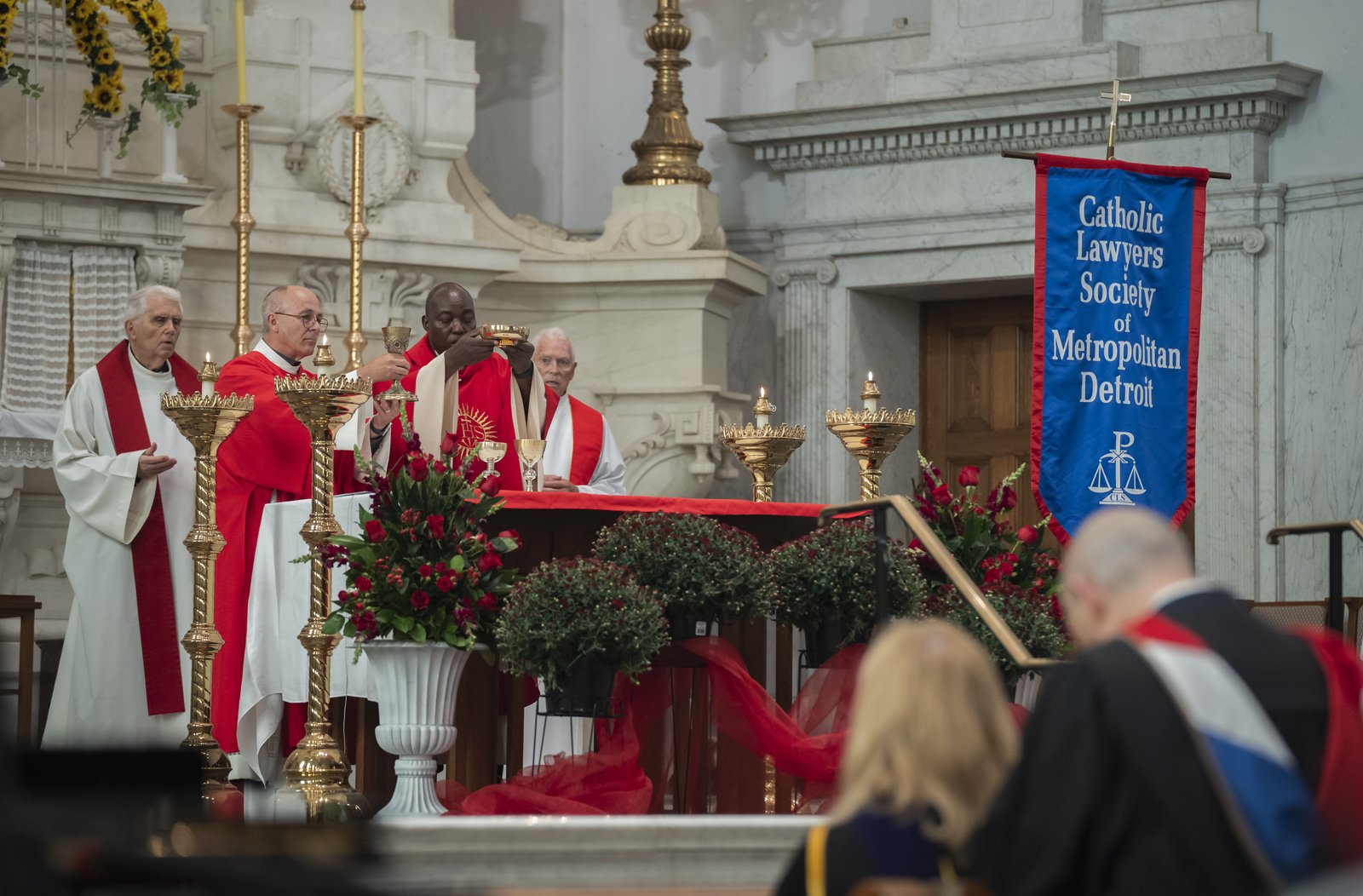
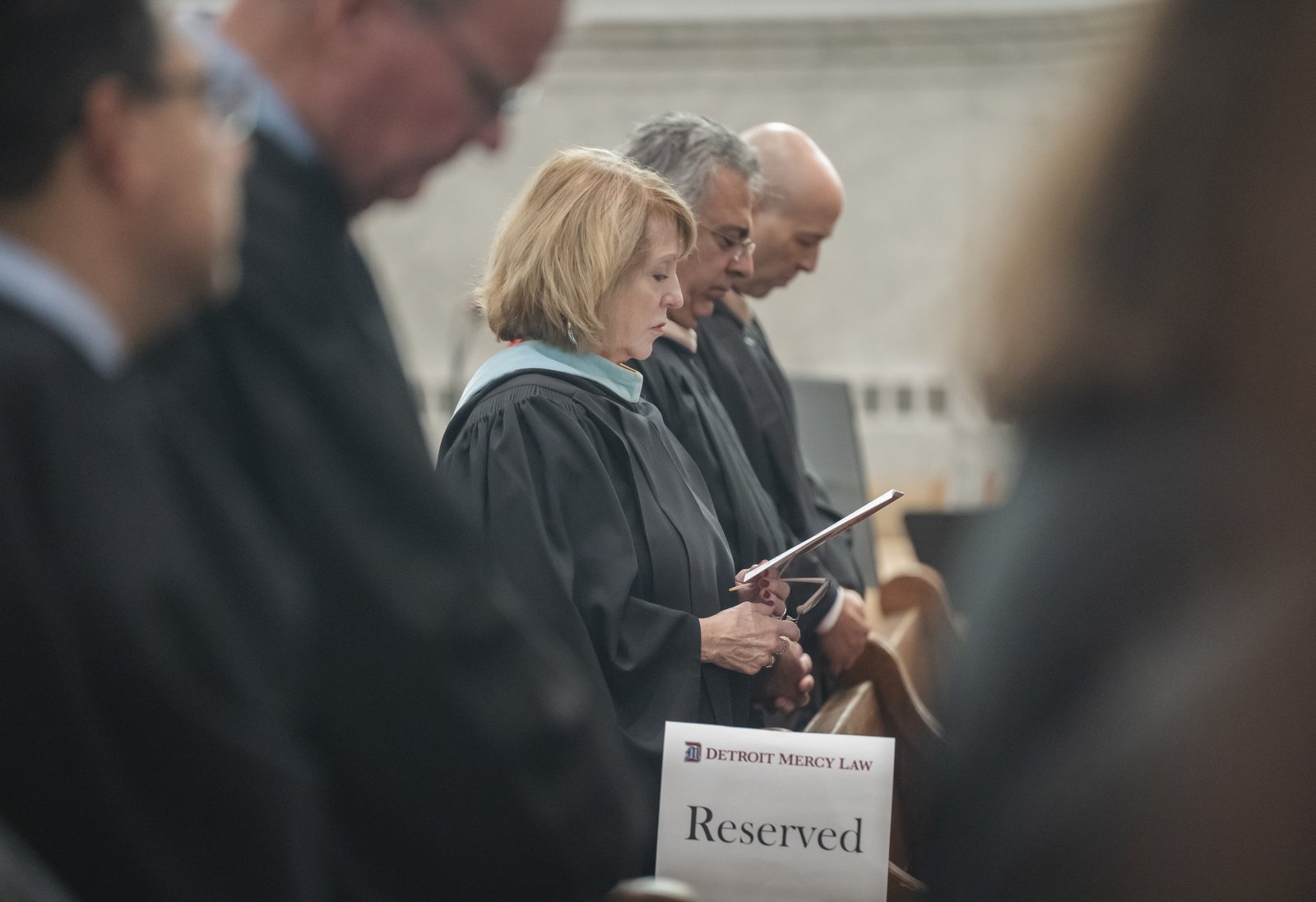
At the beginning of the Mass, Nicholas J. Schroeck, dean and professor of law at Detroit Mercy, thanked everyone for attending, in particular the judges who sat in the front rows.
“Being a judge is a very difficult job; I can only imagine the stress and burden that you all feel in carrying out duties that are vital for our democracy,” Schroeck said. “In this time of increased political violence in our country, which we reject in the strongest possible terms, we know that our judiciary is also facing mounting threats simply for carrying out its constitutional duties. While we repudiate those threats, I also want to lift up and recognize the importance of your work for our society. Thank you, judges, for your honorable and courageous service.”
Schroeck encouraged everyone — from law students to judges — to be their authentic selves while advocating for justice.
“As we continue in these challenging times for our world, we have an opportunity to be our authentic selves while working towards justice, supporting one another, caring for one another, and working together,” Schroeck added.
Near the end of Mass, Schroeck introduced the Honorable Shalina D. Kumar, a U.S. District Court judge for the Eastern District of Michigan, who led all lawyers in renewing the Lawyer’s Oath of Commitment.
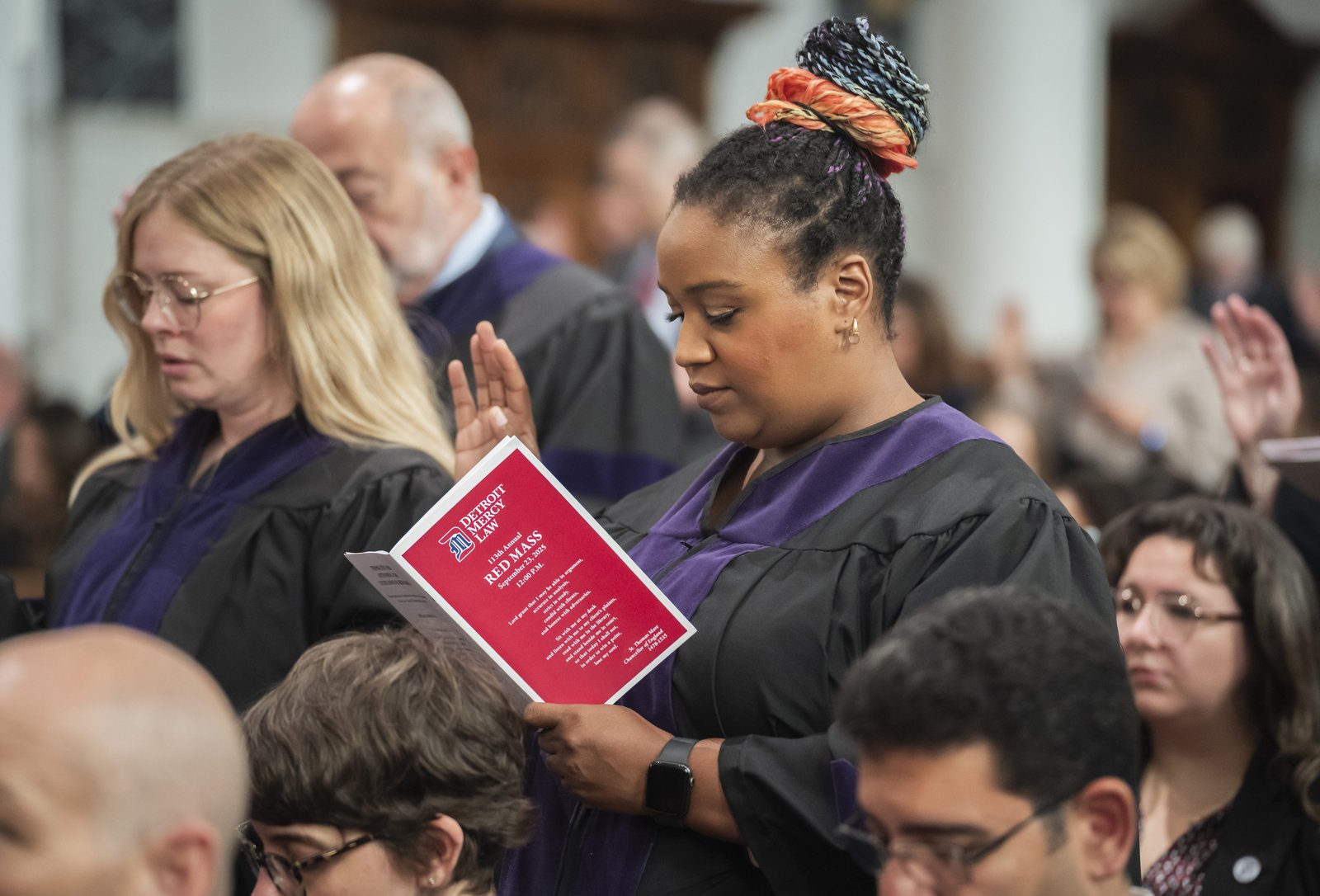
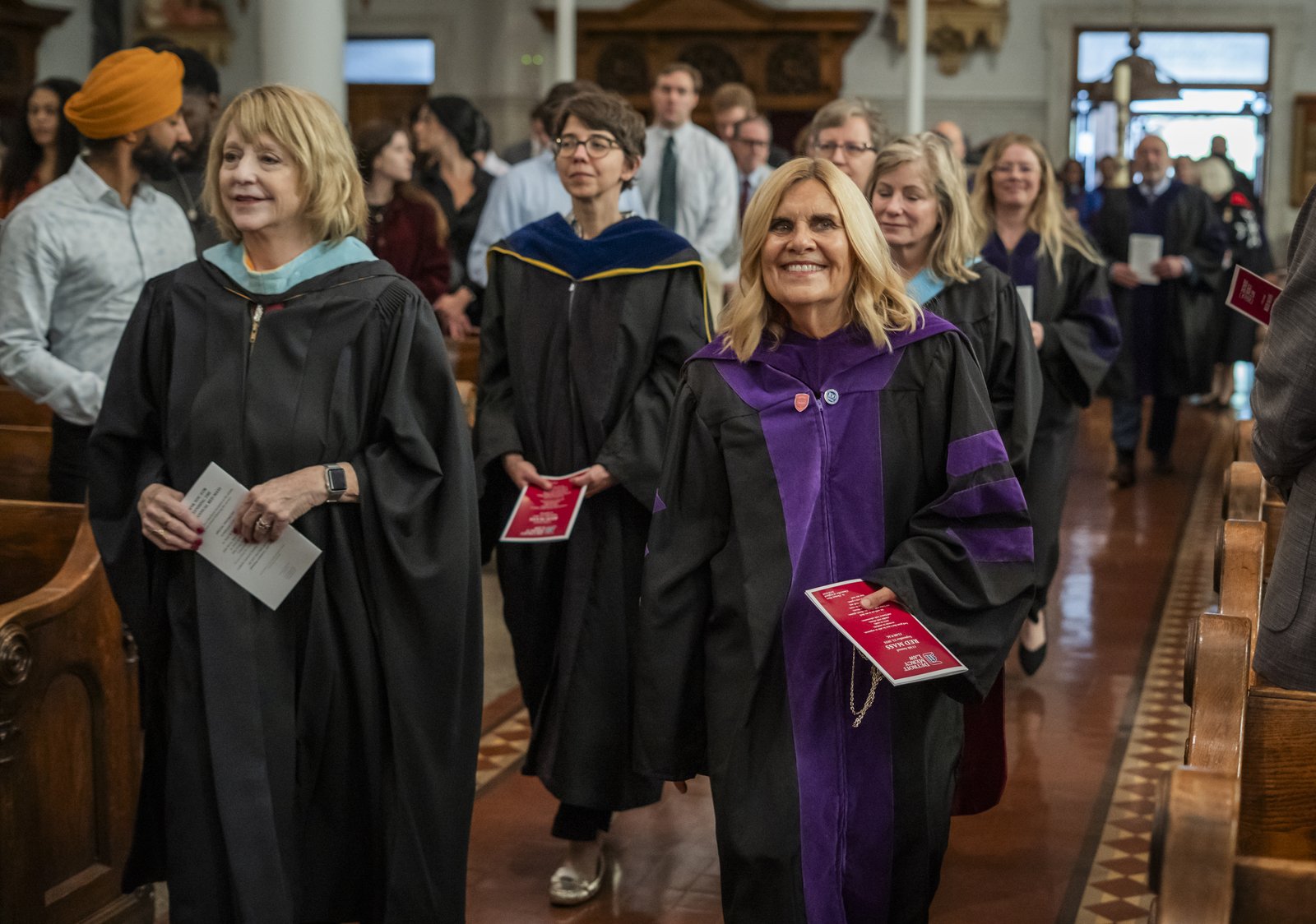
The Red Mass is a tradition that calls all who practice law to reflect on the deep connection between law and morality, justice and mercy and power accountability, Kumar said.
“The Mass — a century-old legal tradition — reminds us that the practice of law is not merely a profession; it is a vocation, a calling,” Kumar said, “one that demands not only intelligence and skills, but also humility, compassion and unwavering commitment to the truth.”
Kumar explained that the oath is a public declaration and promise to uphold the Constitution and pursue justice.
“(It’s a promise to) conduct yourself with integrity even when no one is watching,” Kumar explained. “You will be stewards of justice, and in a world where truth is often clouded by power and where the vulnerable too often go unheard, your voice and your courage will matter. Let it be used for good.
“Today, in the presence of this community of faith and justice, I urge you to remember the law is at its best when it serves others — when it protects the weak, rights the wrongs, and seeks not only legal correctness, but moral clarity.”
Copy Permalink
Catholic colleges Faithful citizenship




